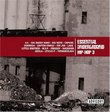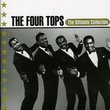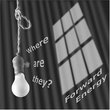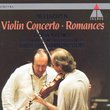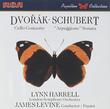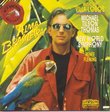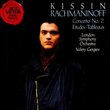| All Artists: Johann Sebastian Bach, András Schiff Title: Bach: The Well Tempered Clavier Book II Members Wishing: 0 Total Copies: 0 Label: Decca Release Date: 10/25/1990 Genre: Classical Styles: Forms & Genres, Improvisation, Historical Periods, Baroque (c.1600-1750) Number of Discs: 2 SwapaCD Credits: 2 UPC: 028941723628 |
Search - Johann Sebastian Bach, András Schiff :: Bach: The Well Tempered Clavier Book II
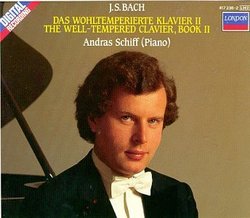 | Johann Sebastian Bach, András Schiff Bach: The Well Tempered Clavier Book II Genre: Classical
Schiff plays the 48 preludes and fugues on the piano, with the utmost sensitivity to voicing and the phrasing of counterpoint. He coaxes a lovely sound from his instrument (better captured in the 1985 recording of Book II ... more » |
Larger Image |
CD DetailsSynopsis
Amazon.com Schiff plays the 48 preludes and fugues on the piano, with the utmost sensitivity to voicing and the phrasing of counterpoint. He coaxes a lovely sound from his instrument (better captured in the 1985 recording of Book II than in the preceding year's takes of Book I), and the experience of following him as he explores each piece is exceptionally rewarding. --Ted Libbey Similar CDs
Similarly Requested CDs |
CD ReviewsVery different in compositional charater - GREAT playing Craig Matteson | Ann Arbor, MI | 07/10/2002 (5 out of 5 stars) "WTC book II is a very different set of pieces than the first book. The pieces are less compositionally tied together and are actually more interesting individual compositions, I think. But the WHOLE of the book is somewhat less than WTC I. But who wants to hear all of the preludes and fugues in a sequence anyway? They were certainly never written to be performed that way. But they are a joy to listen to and an even greater joy to play.This recording is more than very excellent. Schiff's playing is thoughtful, wonderfully voiced, sonorous, and emotionally correct. He never indulges in idiosyncracies to pretend to individuality. Instead, he reaches into the well of his deep musicality and gathers all the resources he needs to make these performances his own without having to resort to musical body piercings or tattoos.You would do very well to have this and the recording of WTC I in your collection." Splendid John Denver | VA | 03/03/2000 (5 out of 5 stars) "I've never heard such delicate and beautiful playing of Bach's Well Tempered Clavier such as this. Schiff coaxes the most incredibly sweet sounds out of his piano and gives these works a new dimension. Some of the tempi in the fugues are slower than those of Gould's survey, as indicated by the reviewer below, but his phrasing is so flowing and smooth that it becomes more hypnotic and the listener becomes entranced by it. Add to the fact that the sound is remarkably full with just the right amount of resonance without compromising clarity (compared to Gould's discs which offer impressive crispness but is rather dry in tone) this set is satisfying in every way." Strong Bach playing from a strong pianist klavierspiel | TX, USA | 03/05/2005 (4 out of 5 stars) "Despite his wide-ranging repertory, Andras Schiff has established himself as something of a Bach specialist. Bach's second collection of twenty-four preludes and fugues in all major and minor keys was composed (and compiled) two decades after the first; although just as masterful in its composition it overall makes for a somewhat less satisfying total listening experience than the first set, primarily because of a certain sameness of tempo and mood that sets in around the F-sharp minor (which in itself is a lovely piece, often played separately), no. 14, and lasts until the A major, no. 19. It is precisely in some of these that one senses a certain overemphatic underlining, a straining for effect that suggests Schiff feels this way as well. The staccato treatment of the A-flat major Fugue, no. 17, a la Gould and the attempt to impose a forceful final climax on the succeeding fugue are cases in point. Nevertheless, as others have pointed out, these pieces were probably never meant by Bach to be performed or heard as a set. For every idea of Schiff's that doesn't quite work, there are many that do--his grasp of the knotty technical and structural problems of the B-flat minor Fugue, for example, is most impressive. The individual listener can easily listen to Schiff's interpretations that match his tastes and skip over those that don't. Though I myself secretly find the old Joerg Demus reading, incorrect ornaments and all, the most satisfying of all of the WTCs on piano, and of course pay homage to Gould's incomparable technical mastery, Schiff's WTC is one modern recording that I return to frequently."
|

 Track Listings (13) - Disc #1
Track Listings (13) - Disc #1